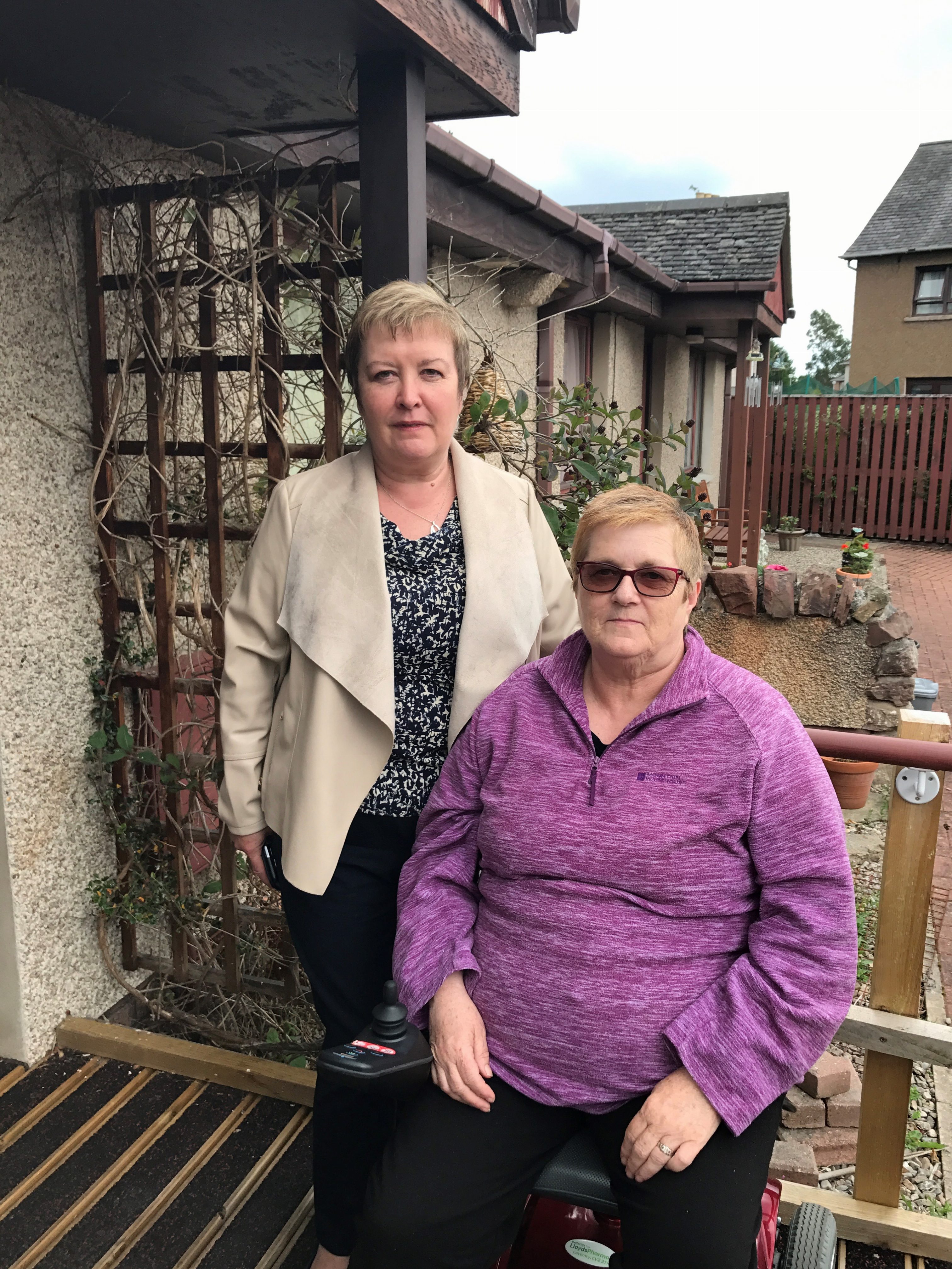A Scottish Parliament committee will hear more submissions this Thursday (September 10) on an Inverness campaigner’s petition supporting the introduction of a focus ultra sound scanner to Scotland to treat people with Essential Tremor.
Mary Ramsay, from Dalneigh, Chair of the Scottish Tremor Society, is asking the Scottish Government to back the provision of magnetic resonance-guided focused ultrasound (MRgFUS) technology.
Mrs Ramsay’s petition will be heard at the Public Petitions Committee and she is backed by Highlands and Islands Labour MSP, Rhoda Grant, who has been a long-time supporter of the cause.
Previously the Public Petitions Committee agreed that the treatment had benefits and went back to the Scottish Government to ask why a decision has stalled, what was needed to achieve the introduction of the treatment and what the timescales were.
Mrs Ramsay (64), who has Essential Tremor, said: “I am really pinning my hopes that at last there will be movement on this by the Government.
“The effects of Essential Tremor can have a serious impact on a person’s life, with lack of understanding and awareness of the condition leading to ineffective treatment but also bullying. I want to prevent any child or adult going through verbal and physical abuse like I did.
“It is estimated that there could be 4000 people in Scotland with Essential Tremor. The main treatment at the moment is brain surgery or deep brain stimulation (DBS) which some people with the condition do not want to endure and DBS is expensive. The focus scanner is cheaper and is also a much less invasive procedure.”
Mrs Ramsay, who will be watching the committee virtually from her home, has had DBS. Her condition causes involuntary and rhythmic shaking and can affect almost any part of the body. She would not benefit from the ultra sound treatment but is passionate that others could.
Mrs Grant added: “At a time when the NHS is under severe pressure, I really believe that this innovation, which is already up and running in England, would not only save money in the long term but would really improve the quality of life for thousands of people.
“Mary has been a fantastic campaigner and has never given up and it would be a great day for her if she achieved her aim to help others.”
The MSP achieved cross-party support for a Scottish Parliament debate on Mary’s campaign in 2018.
- Fundraising for the scanner is being run by the University of Dundee. The technology uses MRI imaging to guide high powered, focused ultrasound to a very small point. At that point, molecules are vibrated extremely quickly, which creates intense local heat which destroys the tissue. The technology allows clinicians to target a very specific focal point – with very little heating produced in front of and behind that point, so only the targeted tissue is affected.
- Essential tremor [ET] has no known cause. It is most common in the elderly but two-thirds in a recent survey developed symptoms of ET before the age of 50. ET affects both sexes and all ethnic groups and children.
- People with ET may be so embarrassed by their tremor that they do not leave their home and become depressed. This embarrassment may impact on jobs and income. As many as 25% of patients are forced to retire prematurely, and in one study 60% said they had chosen not to apply for a job or promotion because of uncontrollable shaking. In a recent UK survey by the National Tremor Foundation, almost 20% of respondents had to stop working completely, 7% had to change occupation, and 6% had to reduce their working hours. In that survey, 12% said that they did not go out to socialise, 31% did so rarely, and 45% did go out but felt self-conscious. Only 12% said that their tremor did not significantly impact their social life. 18% of respondents felt that they were a burden on their family, 21% reported a severe impact on their mental health, 26% reported poor self-esteem, and 15% considered that ET had negatively affected their physical fitness. If the tremor becomes severe, the patient even may become unable to feed or toilet independently and require residential care or a carer at home.
- At present, the only non-pharmacological treatment for severe tremor that is having an unacceptable effect on someone’s quality of life is deep brain stimulation (DBS): as DBS is invasive surgery in which wires are permanently inserted into the brain, some people are not suitable for it because of other diseases (comorbidities) and some do not feel able to consent to a procedure which involves permanent implants and lifelong supervision.

